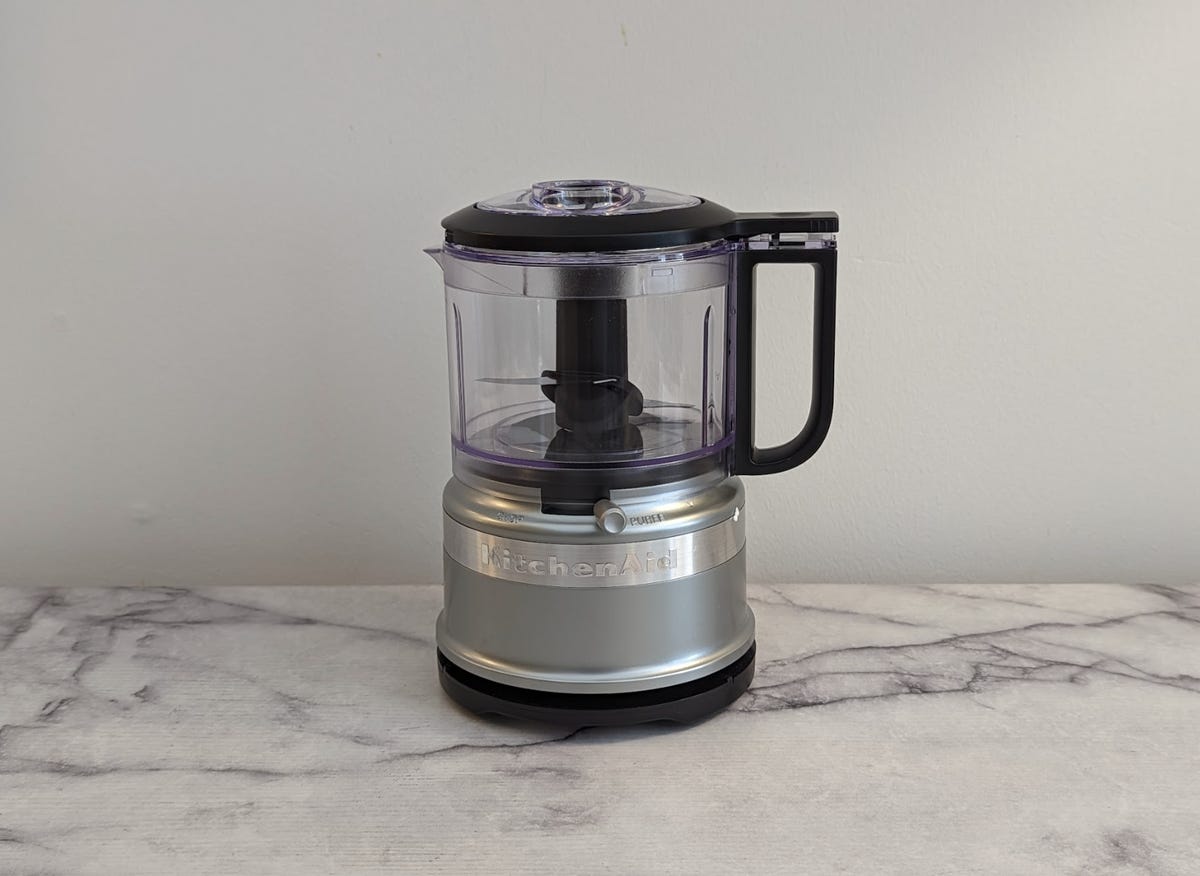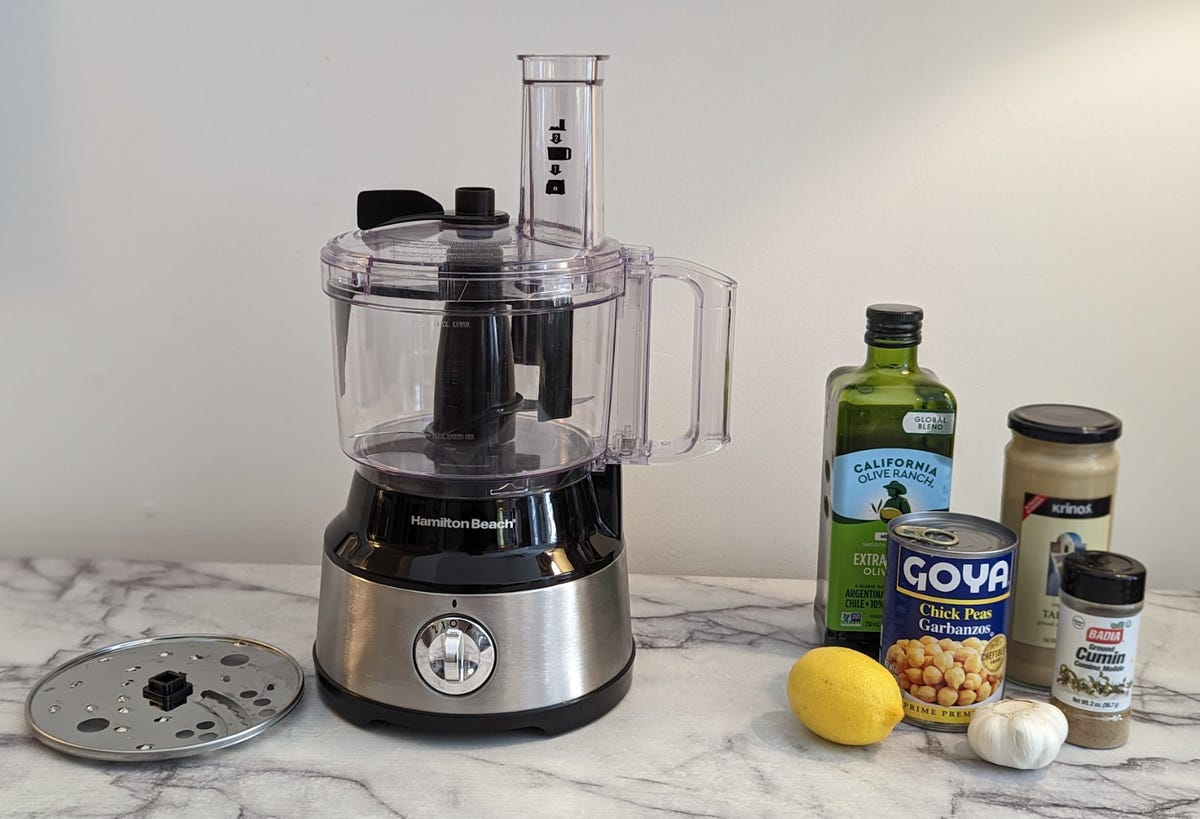While all the food processors I tested can basically get the job done when it comes to chopping, pureeing, shredding and slicing, they come in various sizes and bowl volumes with a range of additional features and price points. If size or price are limiting factors for you, the decision is going to become very easy as you’ll be able to quickly narrow the field to smaller and less expensive models. If price doesn’t matter much, and you have unlimited cabinet space for storage, a good place to begin might be by considering what sort of use you imagine you have for a food processor on a regular basis.

KitchenAid’s 8-cup food chopper is a perfect food processor for those with limited counter and storage space.
Food processor size and weight
There are no standard sizes for food processors, but they are typically categorized based on their bowl volumes: small models in the 3- to 6-cup range, medium in the 7- to 10-cup range, and large in the 10- to 13-cup range. Lightweight models weigh between 5 and 10 pounds, whereas heavier-duty models can be 15 pounds and above. The lighter models tend to have suction feet on the base, to prevent movement while the food processor is operating.

The Hamilton Beach 7073 can be had for $40 and is our pick for the best budget food processor.
Food processor functions
Food processors are primarily used to chop or dice and puree, with an S-shaped, rotating blade doing the work. Shredding and slicing are other typical uses, but different food processors may include two-sided discs for these functions, or separate discs for each, and may include a separate anchor pin that holds these discs in place, where the main S-blade is removed. Short doughs such as pie crusts can be made in a food processor, but kneaded doughs are also possible, with several of the models here offering separate, plastic S-blades for this purpose.
Speeds
Most recipes involving food processors specify mixing or chopping at either a high or low speed and for that reason, you’ll want a processor with at least two speeds and a powerful motor. The most common configuration is a low, high and pulse option. There are some food processors with just one speed, but that’s extremely limiting, so look for a food processor with at least some range of speeds.
Attachments
While your food processor is primarily two spinning blades, plenty of other attachments can expand your processor’s capabilities. Some come with multiple attachments like discs for grating, shredding and slicing, dough blades for kneading bread dough, and attachments for whipping cream, chopping nuts, juicing fruits or dicing vegetables. If you know what tasks you’ll do most often, be sure to check that your processor includes the blades and attachments you’ll need, such as the right mixing blade, chopping blade, slicing blade or citrus juicer. Some food processor models, like the Magimix, come with a lot of these attachments, while for others they must be purchased separately. Depending on your food processing needs, this may be something to consider. Remember, attachments shouldn’t be difficult to clean, and you should definitely check whether they can go in the dishwasher.



















+ There are no comments
Add yours